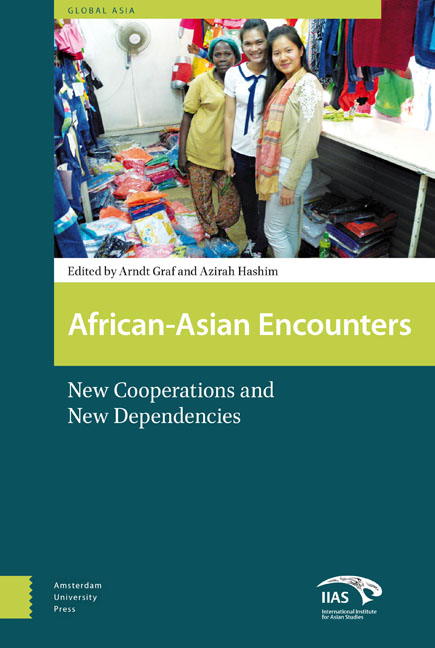5 - The Vietnamese-Chinese Migration Industry in Angola: A Case Study
Published online by Cambridge University Press: 28 January 2021
Summary
Introduction
International migration has become a big global business, which has recently gained much attention in the scholarly discussion evolving around the concept of ‘Migration Industry’ (Hernández-León 2008; Sørensen and Gammelhoft- Hansen 2013). While the underlying phenomenon and its academic investigation is certainly not new, the recent reconceptualization provides an enhanced framework to understanding the dynamics of international labour migration from an actor-centred perspective. The authors define the term Migration Industry as ‘the ensemble of entrepreneurs who, motivated by the pursuit of financial gain, provide a variety of services facilitating human mobility across international borders’ (Hernández-León 2008: 154). Previous studies have investigated these entrepreneurs, such as money lenders, recruiters, transportation providers, or ‘paper pushers’, in diverse but mainly bilateral settings spanning, for example, between Brazil and Japan (Surak 2013), Ethiopia to the Middle East (Fernandez 2013), or Mexico and the United States (Hernández- León 2008). While in most of these corridors the Migration Industry plays a pivotal role in successfully organizing movements of workers across borders, substantial differences in the quality of regulatory frameworks which govern each labour migration corridor and the degree to which they are enforced still prevail in terms of regulations, enforcement, and legal protection.
Using the abovementioned concept of the Migration Industry and data from our fieldwork in Vietnam and Angola, our objective in this chapter is to explore recent empirical interactions between different actors sustaining the labour migration corridor from Vietnam to Angola. Apart from historical relations between the two countries which have spurred small-scale initial migration to Africa, recent large-scale investment by the Chinese government in Angola appears to constitute a key facilitating factor driving further Vietnamese workers to Angola. The underlying mechanism is that, stimulated by these massive Chinese infrastructure investment projects in Angola, Chinese state-owned enterprises (SOEs) have entered the construction sector in Angola and, thereby, have both increased the demand for skilled workers as well as facilitated entry of foreign workers through special visa programmes. Anecdotal evidence on both sides of the Vietnamese-Angolan migration corridor points to the existence of trilateral business networks, whereby Vietnamese entrepreneurs in Angola hire workers from Vietnam, who enter their destination through Chinese visa quotas and, partly, in order to work on Chinese construction projects in Angola. The historic emergence of a Vietnamese diaspora group in Angola including construction entrepreneurs acting as subcontractors for Chinese construction firms adds to that picture.
- Type
- Chapter
- Information
- African-Asian EncountersNew Cooperations and New Dependencies, pp. 133 - 152Publisher: Amsterdam University PressPrint publication year: 2017

